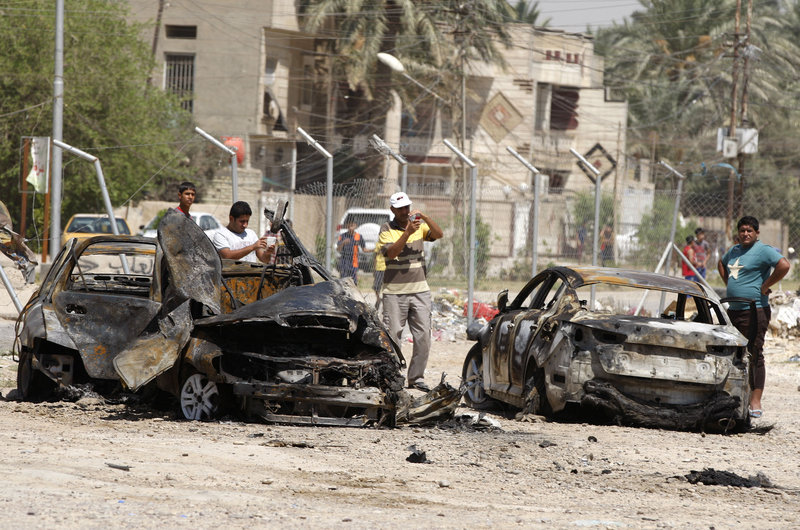WASHINGTON – A resurgence of violence and a renewed threat from al-Qaeda have recently revived flagging U.S. interest in Iraq, officials said Friday as Baghdad asked for new help to fight extremists less than two years after it forced American troops to withdraw.
Faced with security crises across the Mideast, North Africa and Asia, the White House largely has turned its attention away from Iraq since U.S. forces left in 2011. But the country has been hit with deadly bombings at a rate reminiscent of Iraq’s darkest days, stoking new fears of a civil war. More than 1,000 Iraqis were killed in terror-related attacks in July, the deadliest month since 2008.
The violence has spurred Baghdad to seek new U.S. aid to curb the threat, said Iraqi Foreign Minister Foreign Minister Hoshyar Zebari. He said a U.S. assistance package could include a limited number of advisers, intelligence analysis and surveillance assets — including lethal drones.
The American troops left Iraq in December 2011 as required under a 2008 security agreement. Both countries tried to negotiate plans, but failed, to keep at least several thousand U.S. forces in Iraq beyond the deadline to maintain security. But the proposal fell through after Baghdad refused to give the troops immunity from legal charges, as Washington demanded.
Nearly 4,500 U.S. troops were killed, and American taxpayers spent at least $767 billion during the nearly nine years of war in Iraq.
Zebari attributed the insurgency’s comeback to its partnerships with al-Qaeda fighters in neighboring Syria and outlawed Baath Party extremists in Iraq’s south. Intelligence experts have described the terror group’s footing in Iraq and Syria as a new al-Qaeda hub in the Mideast, one that has sought for years to underscore Baghdad’s inability to protect its people.
Most of the attacks in Iraq target government officials, security forces and Shiite pilgrims and neighborhoods. A senior U.S. administration official this week said the number of suicide bombings in Iraq has more than tripled over the last months, and it’s believed that most of the attackers are coming from Syria.
“The security situation in Iraq is deteriorating rapidly and is of significant concern,” Sen. Bob Corker, top Republican on the Senate Foreign Relations Committee, said this week after meeting Iraqi Prime Minister Nouri al-Maliki and other senior Iraqi officials during a trip to Baghdad and Irbil, the Kurdish capital in Iraq’s north.
Copy the Story Link
Send questions/comments to the editors.



Success. Please wait for the page to reload. If the page does not reload within 5 seconds, please refresh the page.
Enter your email and password to access comments.
Hi, to comment on stories you must . This profile is in addition to your subscription and website login.
Already have a commenting profile? .
Invalid username/password.
Please check your email to confirm and complete your registration.
Only subscribers are eligible to post comments. Please subscribe or login first for digital access. Here’s why.
Use the form below to reset your password. When you've submitted your account email, we will send an email with a reset code.